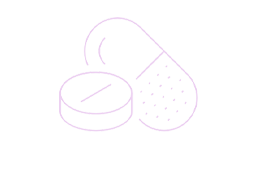Fish Oil Concentrate
Warnings
What may interact with Docosahexaenoic Acid (DHA), Eicosapentaenoic Acid (EPA), Fish Oil?
-Aspirin and aspirin-like medications
-Herbal products like danshen, dong quai, garlic pills, ginger, ginkgo biloba, horse chestnut, willow bark, and others
-Medications that treat or prevent blood clots, such as enoxaparin, heparin, warfarin
What should I tell my health care provider before I take Docosahexaenoic Acid (DHA), Eicosapentaenoic Acid (EPA), Fish Oil?
They need to know if you have any of these conditions
-Bleeding problems
-Lung or breathing disease, like asthma
-An unusual or allergic reaction to fish oil, omega-3 fatty acids, fish, other medications, foods, dyes, or preservatives
-Pregnant or trying to get pregnant
-Breast-feeding
What should I watch for while using Docosahexaenoic Acid (DHA), Eicosapentaenoic Acid (EPA), Fish Oil?
Follow a good diet and exercise plan. Taking a dietary supplement does not replace a healthy lifestyle. Some foods that have omega-3 fatty acids naturally are fatty fish like albacore tuna, halibut, herring, mackerel, lake trout, salmon, and sardines.
Too much of this medication can be unsafe. Talk to your care team about how much of this medication is right for you.
If you are scheduled for any medical or dental procedure, tell your care team that you are taking this medication. You may need to stop taking this medication before the procedure.
Herbal or dietary supplements are not regulated like medications. Rigid quality control standards are not required for dietary supplements. The purity and strength of these products can vary. The safety and effect of this dietary supplement for a certain disease or illness is not well known. This product is not intended to diagnose, treat, cure or prevent any disease.
The Food and Drug Administration suggests the following to help consumers protect themselves:
-Always read product labels and follow directions.
-Natural does not mean a product is safe for humans to take.
-Look for products that include USP after the ingredient name. This means that the manufacturer followed the standards of the US Pharmacopoeia.
-Products made or sold by a nationally known food or drug company are more likely to be made under tight controls. You can write to the company for more information about how the product was made.
Where should I keep my medicine?
Keep out of the reach of children.
Store at room temperature or as directed on the package label. Protect from moisture. Do not freeze. Throw away any unused medication after the expiration date.

SOCIAL